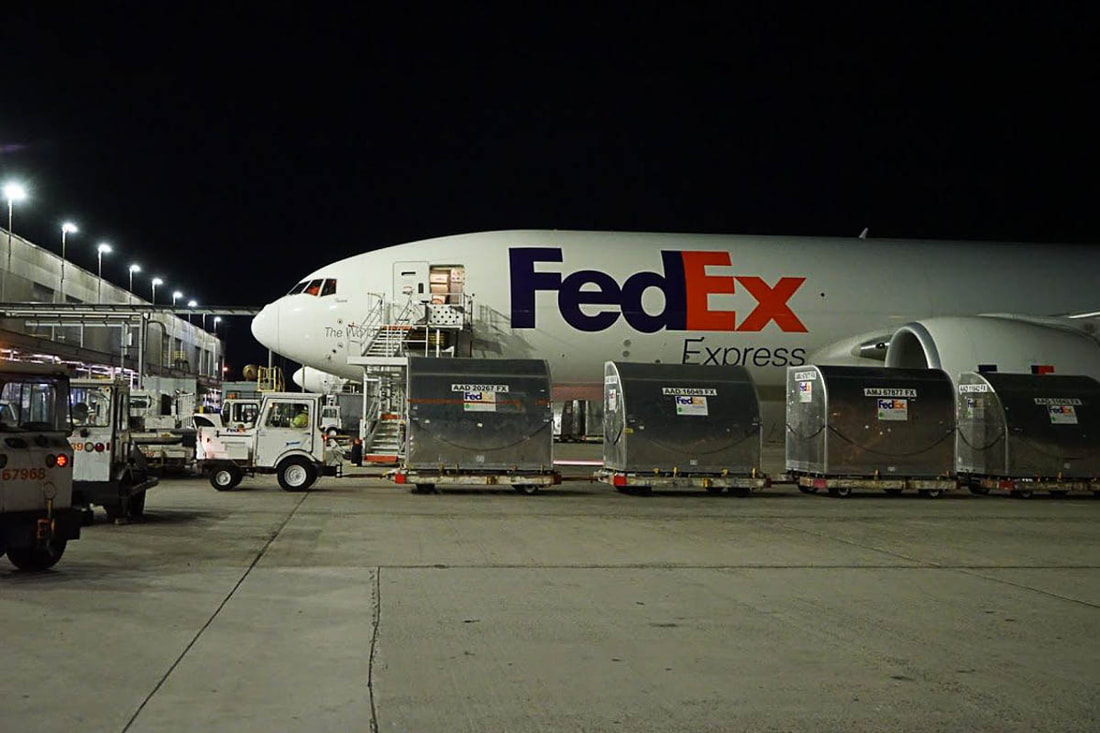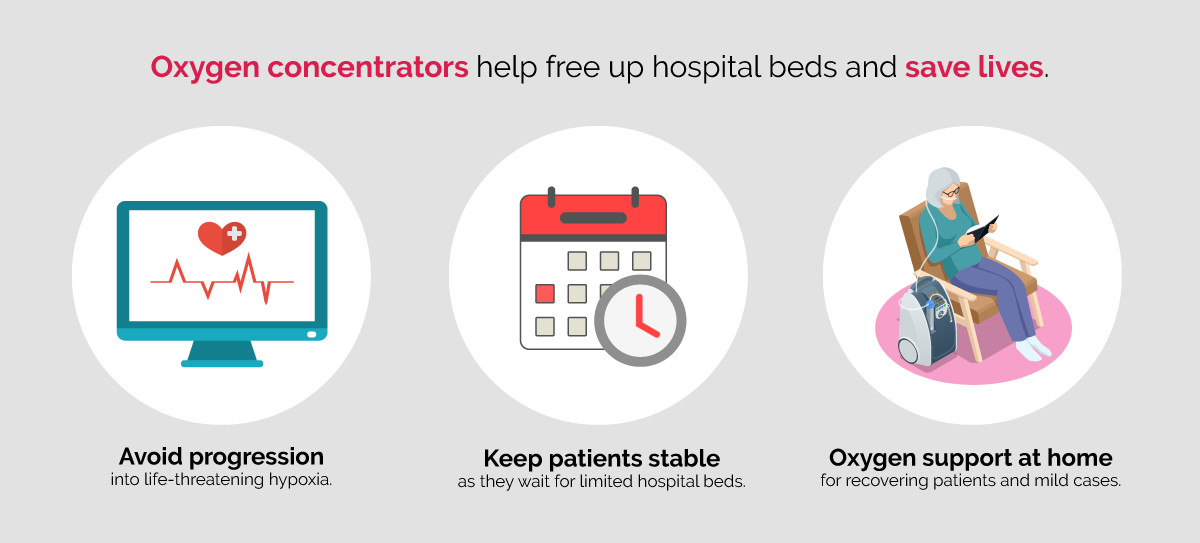|
On May 9, a Fedex cargo plane from Newark touched down in Mumbai, India. On board were more than 3,400 oxygen concentrators procured by Community Partners International (CPI) in partnership with Navya and Direct Relief. A few hours later, an Air India passenger plane reached Delhi with an additional 400 concentrators. These are the third and fourth humanitarian shipments delivered to India by Community Partners International and partners in the past two weeks that will help many thousands of people survive COVID-19. Once on the ground, the concentrators were delivered to the Tata Memorial Center (TMC). TMC has eight centers across India and also spearheads the National Cancer Grid, a consortium of 250 hospitals. Through this network, TMC is leading the distribution of the oxygen concentrators and other essential equipment and supplies to states where the needs are greatest. Concentrators have already reached hospitals in Assam and Bihar. “These oxygen concentrators just need an electricity supply to provide patients with lifesaving oxygen,” explains Community Partners International Board Chair and Antelope Valley Hospital ER physician Dr. Tom Lee. “They draw in air, concentrate the oxygen, and deliver it to the patient via a breathing mask. One oxygen concentrator can be used by as many as 60 patients in a month. So these concentrators could help more than 200,000 COVID-19 patients in India each month.” The concentrators help patients with low oxygen levels to avoid progression into life-threatening hypoxia. They keep patients stable as they wait for limited hospital beds. Some are portable, meaning that COVID-19 patients can take them home as they continue their recovery. This means that they can leave the hospital sooner, freeing up urgently-needed bed spaces. With more than 400,000 COVID-19 cases now detected each day, India’s health system is overwhelmed. Hospitals are full and are struggling to meet patients’ oxygen needs. People are dying in their homes and in the streets, struggling for breath. Family members desperately search for hospital beds and oxygen supplies for sick relatives, often to no avail.
While India technically has the oxygen production capacity to meet needs, the problem is distribution. Much of the system relies on oxygen tanks being taken to refilling stations and then redistributed. Under normal circumstances, this supply system is sufficient. But not any more. Even hospitals with their own oxygen-generating plants are struggling to meet soaring needs. Portable oxygen concentrators are a valuable tool in the race to save lives. Community Partners International is already thinking ahead to the next phases of COVID-19 relief for India and other countries in South Asia. “We have a shipment to Nepal ready to take off, and we are planning further imminent shipments to Sri Lanka, Pakistan, and Bangladesh,” confirms Dr. Lee. “We’re also looking at options to help hospitals set up oxygen generation plants and looking at how we can help scale up vaccination programs in South Asia.” “This initiative is made possible thanks to the incredible generosity of many individuals and organizations,” affirms Dr. Lee. “I am deeply grateful to the many hundreds of people, foundations and companies who have made donations. Tata Memorial Centre is providing crucial leadership on the ground in India. Navya and Direct Relief have been instrumental in supporting fundraising and logistics. Fedex and Air India have generously transported the equipment to India at no charge. Inogen and Caire, Inc. have supplied oxygen concentrators at heavily discounted prices. Every member of the team has mobilized to help save lives in India and South Asia.” To support Community Partners International’s South Asia COVID-19 Response, donate at https://www.cpintl.org/south-asia-covid-response.html Comments are closed.
|
AuthorCPI Admin Archives
July 2024
Categories
All
|
|
|
COMMUNITY PARTNERS INTERNATIONAL
580 California St Fl 16, Ste 1658, San Francisco, CA 94104-1068, USA [email protected] +1 510 225 9676 We are a registered nonprofit 501(c)(3) Public Charity. TAX ID 94-3375666 |
©
Community Partners International



 RSS Feed
RSS Feed
